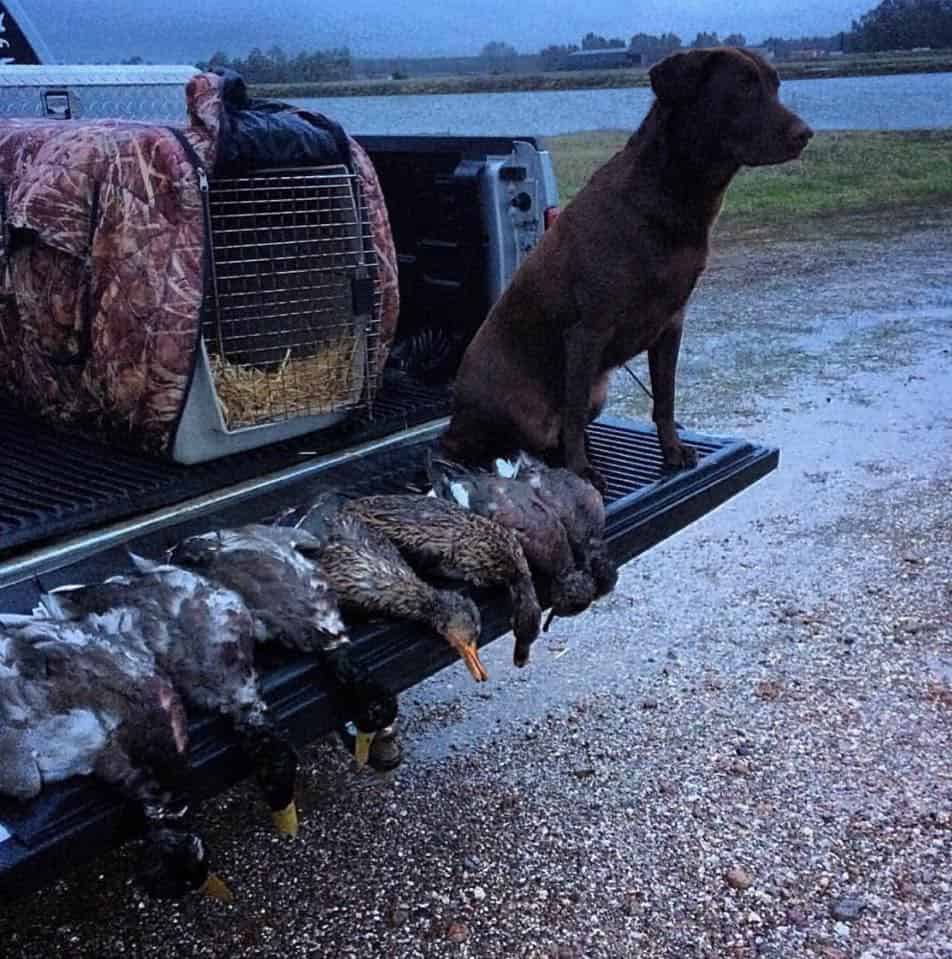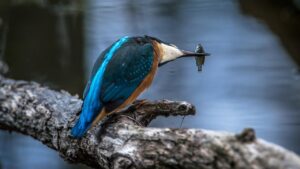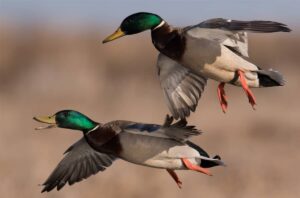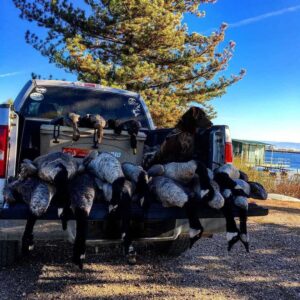10 Tips to Train the Perfect Hunting Dog
We all have that friend: the one with the dog who incessantly barks, or jumps on you or refuses to listen to anyone. No one likes that dog because it has no manners, but that is not the dog’s fault; it is the owners because they did not take the time to train the dog. Today we will discuss training tips for your hunting dog so you can have the best trained dog in the friend group!
- Spend time with them every day
Your puppy needs to be worked with every single day, but only for 20-30 minutes per day. This is enough time to reinforce good behavior but not so long that the puppy will become over stimulated or frustrated with the training process.
- Simple Obedience
All good hunting dogs have one thing in common: they obey their owners regardless of the circumstances. This starts with basic commands such as “here/come”, “sit” and “stay”. Having a well trained dog will not only make your life easier in the hunting blind or field but also easier if your dog is the family pet as well. Making sure your puppy has a solid foundation on basic commands will allow you to introduce cues specific to hunting when the dog is older.
- Repetition
Puppies learn by repetition, making sure that your commands are consistent is crucial to your puppy’s success. This means that every person who interacts with your puppy needs to use the right commands. For example: some people use the command “here” to get the dog to come to them; while others use the command “come”. Making sure everyone in your family is using the same verbiage will ensure your puppy understands basic obedience commands which leads to less frustration on the part of the owner and puppy.
- Make it Fun
Puppies love to play and making training fun will mean your puppy won’t think of it as a training session. Making training fun could mean incorporating a toy or treats into the training session. Many dogs have a preference: either they are motivated by treats or toys. This is simple to determine because the puppy will be more interested/excited in either treats or a specific toy. Incorporating these into training sessions will make it fun for the puppy.
- Positive Reinforcement versus Punishment
Like people, dogs learn better and faster if positive reinforcement is used and not punishment. Positive reinforcement could be toys or treats as discussed above or it could be pats and an encouraging voice. Always punishing your puppy when they make a mistake may make them nervous and not comfortable around you which will cause issues down the road. Only using punishment when needed will give your confidence because they will know the rules. Punishing the puppy continuously when they are trying to understand the command is not helpful in training.
- Desensitizing Slowly to Gunshot
This is a critical aspect of training a hunting dog because if not done properly it could result in the puppy becoming gun-shy which often cannot be corrected. When Maya was a puppy I began this process by banging pots and pans together while she was eating. Once that process did not phase her then I moved on to a small caliber gun approximately 100 yards away. As she became more comfortable I decreased the distance and increased the caliber gun being used. I did not move closer to her or to a louder gun until Maya was 100% comfortable with the current distance and caliber gun.
- Socialization
Creating a bond with your bond is probably the easiest part of training your puppy because puppies are fun to play with! This aspect of training also includes teaching your puppy that they have toys of their own and that the kitchen towels or shoes on the floor are off limits. When the time is right, introducing your puppy to other dogs is critical. A well socialized dog is not only bonded to you and more willing to please you, but is also comfortable in different situations.
- Exploration
Eventually, you will hunt with your dog in different terrain and areas. Allowing your dog to explore off leash will increase their confidence. The exploration sessions will also allow your puppy to get used to different terrain prior to being under the pressure of hunting. Always make sure that you keep your puppy in your line of sight because during these exploration sessions they may get stuck or in trouble. You want to encourage your puppy to be confident and independent but they are puppies and they can get in a bind sometimes. An added bonus of allowing your puppy to explore is added muscle mass and overall fitness to the dog.
- Introducing the First Bird
Introducing birds to the dog is just as important as introducing your puppy to gunshots. We recommend that you start this process in an area with little to no distractions so you can have your puppy’s full attention. I recommend using a dead chukar because they will not flop around and scare the puppy. If the puppy starts to shake the bird or bite it, calmly stop the behavior. This ensures that your puppy has a soft mouth, a hard mouth retriever results in roughly handled game.
- Water
Just as you need to allow your dog to explore new terrain on their own, introducing them to water in a controlled environment is critical to your puppy’s training. The first time introducing a puppy to water needs to be in water with no current such as a lake or pool. I recommend walking in with your puppy because they are more likely to follow you into the water. Once the puppy is in the water, let them do whatever they are comfortable with. That may mean swimming around or running in and out of the water. It is recommended that once you introduce your puppy to water to incorporate water into your training sessions. Most hunting dogs take to water very easily, but it is important to have a confident dog in the water.
With these tips you will have a well trained dog who will be a delight to hunt with and a great, well mannered family dog that everyone will enjoy interacting with.




